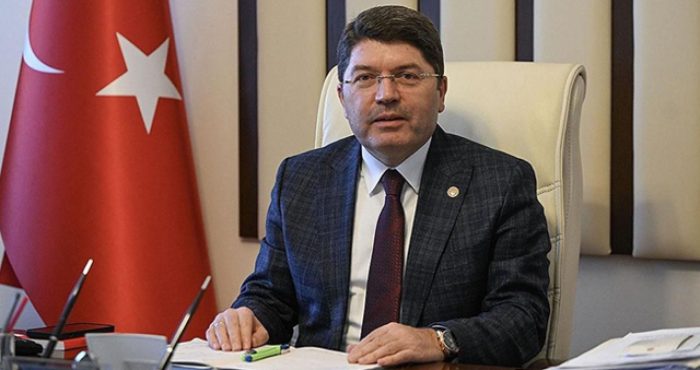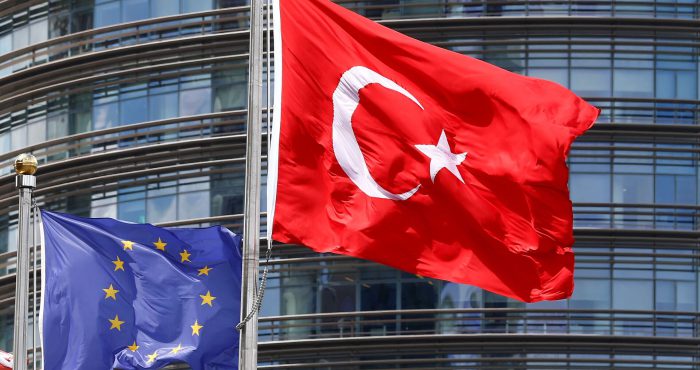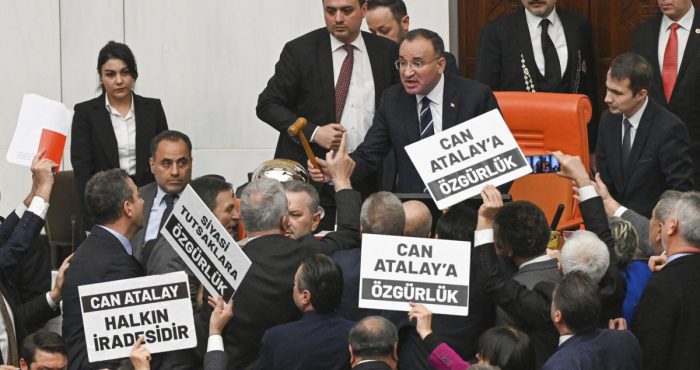İstanbul mayor Ekrem İmamoğlu told the British newspaper the Financial Times that President Recep Tayyip Erdoğan would dismiss him if he was re-elected—a statement that reverberated across the political world. İmamoğlu stressed that the impact of Erdoğan’s election victory on his own position rather than the effects it would have in the areas of law, democracy and economy in Turkey. This is a topic of discussion on its own, but it is not the subject of this text.
İmamoğlu said something else in the same interview that was overshadowed: “The business world is also to blame for the economic problems. Businesspeople should gather their courage and stand up to Erdoğan.”
First of all, Mr. İmamoğlu must accept this: Businesspeople are not heroes but accountants; they strive to run their businesses successfully and profitably. Why should they engage in businesses that they will not make a profit from, but that rather suffer losses?
İmamoğlu should seek the answer in the right place.
İmamoğlu knows it too: from science to arbitrariness
Where does the government get the audacity to move away from science in economic management? Why are the governors of the Central Bank (TCMB) deliberately making decisions that drive up the exchange rate and inflation, and not protecting the value of the Turkish currency? The TCMB requires exporters to exchange their foreign currency, while the Banking Regulation and Supervision Agency (BDDK) bans loans to those with foreign currency assets, even though it is not authorized to do so.
The answer is this: because, as the Constitutional Court found in the Soma mine explosion and the Pamukova train accident, public officials who should be prosecuted are not brought to justice. When the perpetrators of crimes are public officials, the judiciary cannot perform its duties unless those perpetrators’ administrative superiors give permission. This means that the judiciary is subordinate to public servants—the administrative superiors of those accused of crimes—and therefore to the government. Although senior executives of the TCMB, BDDK and similar institutions may abuse their positions, they are never prosecuted unless the minister or president with whom they are associated allows the prosecution to take place. It is as if the country is a monarchy, civil servants are exempt from criminal responsibility and punishment, and the judiciary cannot freely investigate civil servants unless they are given permission to do so.
Some may try to get such decisions to deny permission annulled, but, as happened in the Pamukova case, the protracted nature of this process can mean that crimes become subject to the statute of limitations and the perpetrators get away with them.
In politics and the judiciary, the situation is worse
To ensure that the investigation of any alleged crimes of the president, ministers and MPs is possible, the parliament must remove the immunities. However, while the ruling party can lift the immunity of the opposition for reasons of political calculation, no one can touch those in power. The judiciary cannot reach those who really need to be tried. Privileges and immunities can be abused and violated for political reasons depending on the parliamentary arithmetic.
The situation is worse in the judiciary. If the Council of Judges and Prosecutors (HSK), the Constitutional Court, the Council of State and the Court of Cassation do not give permission, it is impossible to investigate judges and prosecutors who may have committed crimes, even if they have blood on their hands. The decisions of these institutions to deny permission for investigation and prosecution are as final as God’s decree and there is no judicial review.
Under these circumstances, nepotism, influence-peddling and unethical politics are rife everywhere in the public sector, and especially among politicians in power.
On the other hand, as in the case of the Peoples’ Democratic Party (HDP) indictment, the Constitutional Court can reject an indictment issued by the chief public prosecutor in a case it is to hear as the Supreme Court. The court provides guidance to the prosecution on how to fulfill its duty in the case.
The judiciary cannot intervene where politicians, judges and civil servants commit crimes
This is the bottom line; politicians, members of the judiciary and civil servants who commit crimes can themselves decide which of them will be prosecuted and punished. It is not possible to remain honest, to resist those who commit crimes, or to commit crimes alone without joining other criminals.
Those who make the excuse that “if the judiciary investigates those who commit crimes without permission, civil servants cannot carry out their duties” have sold this situation, which means that civil servants can freely commit the crime of misconduct, to the nation and in doing so have crippled the entire state system.
Thus, although the Constitution states that everybody is equal before the law, politicians, the judiciary and other public officials who are members of the state organization have effectively become a privileged class immune from criminal responsibility and punishment and untouchable.
Good rulers are not chosen randomly
In these circumstances, putting honest people in charge of the state depends entirely on the good will, incorruptibility and resilience of a few political leaders. It is not possible for the country to have good rulers and to be well governed without eliminating this bizarre situation that leads to instability and ups and downs in the economy and the democracy.
The solution to this fundamental problem is the abolition of all kinds of prior authorization for investigations that prevent the judiciary from functioning freely, and making everyone truly and without exception equal before the law. To eliminate the requirement for permission to investigate, on the one hand, and to provide the bureaucracy with a high level of legal security on the other, it must be ensured that senior public officials are tried, without preconditions and unconditionally, in the Supreme Court of Justice which should be established and that lower-level officials are tried in specialized courts in regional centers.
Their immunity should be lifted, and the High Court of Justice should be entrusted with the task of indictments in cases to be tried in the Supreme Court.
Bureaucracy strengthened by law, stability and sustainability
Once these goals are realized, the bureaucracy will become stronger against politicians and will be able to act as the guarantor of stability in state administration, while increasing its compliance with the law.
This will strengthen the compliance with the law of politicians, members of the judiciary and public officials in the state organization; eliminate mismanagement errors such as abuse of office, neglect of duty, and arbitrary and unscientific behavior, which have major consequences in the economic field; protect the value of money and increase the predictability and stability of the economy; and ensure stable governance and a sustainable increase in the welfare of people and society.
This is why the establishment of the Supreme Court of Justice is one of the most strategically important steps in ensuring the rule of law and sustainable prosperity in our country.




